
News from Nashville

TDOT Announces West Knoxville Corridor Strategy
Comprehensive Approach to Improve Safety and Mobility
To find solutions to congestion issues in and around Knoxville, the Tennessee Department of Transportation (TDOT) announced its Comprehensive Strategy for the I-40/I-75 Corridor in Loudon and Knox Counties.
TDOT’s 10-Year Plan, released in December, identifies funding for the interchange at I-40 and Watt Road, Improvements to the I-40/I-75 corridor, and preliminary engineering of the Sharps Gap Interchange. This new strategy combines these projects in taking a holistic approach to the entire corridor.
“By shifting focus from individual projects to a comprehensive strategy we can better address long-term needs for this corridor and maximize the value of investments,” said Deputy Governor and TDOT Commissioner Butch Eley. “Thanks to Governor Lee prioritizing infrastructure, we’re transforming how TDOT approaches delivery leading to a more efficient use of resources and improved project outcomes.”
The 17-mile stretch between the I-75 split in Loudon County and the I-640 split in Knox County is one of the most congested areas in the state. Backups have become commonplace at multiple locations along this corridor, with over 205,000 vehicles using it every day.
“This stretch of interstate is a vital pathway for Tennesseans and for the entire East Tennessee economy,” says Lieutenant Governor Randy McNally. “With that, we have experienced tremendous growth, congestion, and unreliable trip times. I am excited to partner with the Department of Transportation to advance solutions that benefit multiple communities along this corridor in a comprehensive manner.”
“Our efforts to enhance mobility in this region have been ongoing for years,” said Senate Transportation Chairlady, Becky Massey. “Through collaboration and pooling of resources, everyone benefits. Together we pave the way for a more connected and prosperous future for Knoxville and the surrounding area.”
During the next 18 to 24 months, TDOT will invest in preliminary engineering to determine what corridor improvements need to be made to increase throughput and reduce travel times.
Preliminary engineering will focus on significant enhancements to the 17-mile corridor where I-40 and I-75 are joined and includes the interchanges at Watt Road and Campbell Station Road, both weigh stations, and the potential for future Choice Lanes. The work will include data collection, an assessment of previous studies, an existing conditions analysis of both engineering and environmental features, a traffic analysis, and an operations assessment.
The work produced by this investment is our down payment to improve this corridor by finding the best way for traffic to move more efficiently; this investment does not represent the full cost of the project, which will be further developed as this engineering work proceeds. We are developing a strategy for funding by leveraging dollars and applying for discretionary grant opportunities in which we think this project is a strong candidate.
TDOT looks forward to working with General Assembly members, local elected officials, and the surrounding communities to enhance our transportation network for generations to come.

Protecting Children from Social Media Act passes Senate
It is vital to ensure the safety and well-being of Tennessee youth in the digital age. With the exponential growth of social media platforms, the Protecting Children from Social Media Act, aims to safeguard children from harmful content found on social media platforms.
The bill would require social media companies to verify the age of any individual creating an account on their platform. If the account holder is a minor, the company must obtain express consent from the parent or guardian for the account creation.
Additionally, the bill would require social media companies to provide parents and guardians with account restriction options for their children. These restrictions include privacy settings, daily time restrictions, and implemented breaks from the platform.
Senate Bill 2097 passed the Senate and House floor and now moves to the Governor’s desk for his signature.
Legislation penalizes false reports of active shooter
The Senate passed legislation last week to increase protections against the intentional false reporting of emergencies in Tennessee, often referred to as “swatting.”
Senate Bill 2222, would make it a Class C felony to knowingly make a false report of an active shooter and hostage situation in order to draw a large law enforcement response to a specific location.
It is already illegal under state law to intentionally make a false report regarding a past, present or future bombing or fire. The legislation now moves to the Governor’s desk for his signature.

Tennessee Disability and Aging Act signed into law
On Thursday, I joined Governor Bill Lee signed the Tennessee Disability and Aging Act, legislation that merges Tennessee’s Department of Intellectual and Developmental Disabilities (DIDD) and Commission on Aging and Disability (TCAD), creating a new Department of Disability and Aging (DDA). This bill received unanimous, bipartisan legislative support and was backed by numerous stakeholders.
Adults 65 years and older are the fastest-growing demographic in Tennessee. With a rapidly increasing aging population, the state must ensure it has the infrastructure in place to serve the needs of older adults.
The merging of the Department of Intellectual and Developmental Disabilities with the Tennessee Commission on Aging and Disability is an advantageous step in ensuring all Tennesseans can live and age with independence. I was pleased to sponsor this legislation so both individuals with disabilities and our seniors can be represented by a Commissioner and Department that totally focuses on issues and services important to them. I am confident the newly formed Department will offer exceptional service and provide a voice for these valued citizens.
TCAD is Tennessee’s federally designated “state unit on aging,” currently overseeing Older Americans Act programs and providing leadership relative to aging issues throughout state government. Tennessee is one of two states that did not previously house its “state unit on aging” within a cabinet-level agency.
Additionally, there are many similarities in the supports and services DIDD and TCAD provide to enhance the quality of life and independence of the populations they serve. Unifying these two agencies will provide for better coordination on areas of shared priorities.
Tennessee Senate passes bill allowing death penalty for child rapists
The Senate advanced legislation to increase the penalty for child rapists in Tennessee. Senate Bill 1834, would expand the death penalty to defendants convicted of child rape.
The legislation will strengthen existing state law by increasing the penalty for rape or aggravated rape of a child to death, life in prison without the possibility of parole, or life in prison. Current law classifies the offense as a Class A felony punishable as either a Range III offense, which carries a sentence of 40-60 years in prison or a Range II offense of 25-40 years in prison.
The proposal builds on the General Assembly’s efforts in recent years to improve public safety, reduce recidivism rates, and hold criminals accountable through smart-on-crime justice reforms. The General Assembly in 2022 passed truth in sentencing laws that increased penalties for the most violent of crimes and now requires offenders to serve 85-100 percent of their sentences.
Senate Bill 1834 passed the Senate floor and is still moving through committee in the House of Representatives.
Opposing US participation in WHO Pandemic Accord
In May 2024, the World Health Organization (WHO) Pandemic Prevention Preparedness and Response Accord (PPPRA) will become binding upon the United States. Senate Joint Resolution 1135 passed on the Senate floor this week which urges the Biden Administration to withdraw the United States from the PPPRA. There is concern that United States involvement in the accord would relinquish national and state power to an international organization with no accountability to the American people.
The resolution strongly opposes the United States cooperation in this accord. The resolution passed the Senate last week and awaits House concurrence.
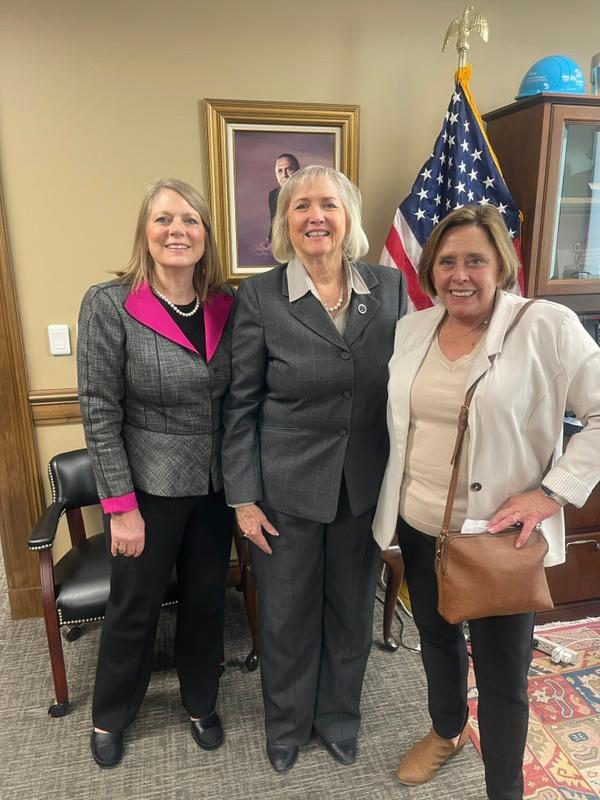
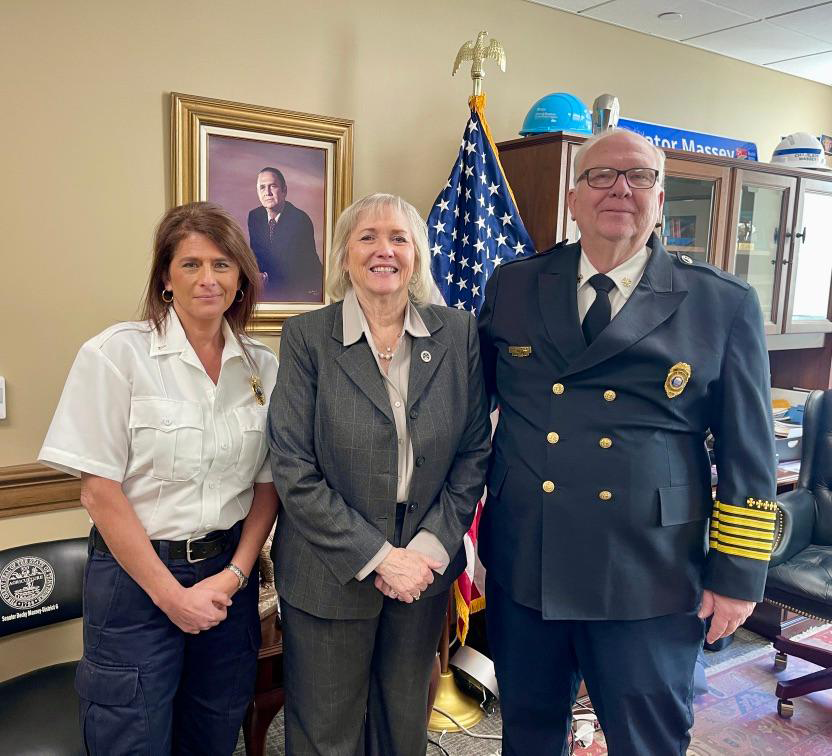
In brief…
Election integrity – Senate Bill 2586 which will protect the integrity of elections in Tennessee. The bill will prohibit a convicted felon from handling or collecting voter applications in a voter registration drive. It also ensures that a person involved in the voter registration drive cannot alter an application without the applicant’s consent. This change in law will bring more integrity to election registration and survive court scrutiny.
Punishing illegal distribution of obscene material –This legislation passed on the Senate floor to ensure anyone who produces and distributes illegal obscene material can be held civilly liable for injuries and damages to an injured party. Individuals and entities who produce, sell, send, or distribute obscene material are already in violation of state and federal law. Senate Bill 2041 will further discourage the production and distribution of pornography and obscenity in Tennessee. The bill now sits on the Governor’s desk and awaits his signature.
Threats of violence – The full Senate passed legislation strengthening the punishment for threatening to commit mass violence on school property or at a school-related activity in Tennessee. Senate Bill 2263, would increase the crime from a Class A misdemeanor to a Class E felony. The legislation includes an exception for individuals with an intellectual disability. The bill now awaits the Governor’s signature.
Mitigating threats of violence on school property – Senate Bill 1501 will give law enforcement another tool to stop students from threatening violence on school property. The proposed language will clarify the definition of school property and add “student” to existing “communicating a threat” language which currently only applies to school employees. The bill passed the Senate floor on Tuesday and now sits on the Governor’s desk and awaits his signature.
Increasing protections from bullying and cyberbullying – Legislation passed on the Senate floor last week to further protect students in Tennessee from bullying and cyberbullying. Senate Bill 1887, would classify the crimes as forms of harassment and require an officer who has knowledge of bullying or cyberbullying to make a report of the incident and notify the parent or guardian when the victim is a minor. The bill now sits on the Governor’s desk and awaits his signature.
Alcohol sales at salons – This legislation will allow barbershops and salons to sell alcoholic beverages to their customers. Current law allows the distribution of alcohol in these retail businesses but not the sale of it. Senate Bill 2506passed the Senate last Monday and now moves to the House.
Public transparency on status of criminal cases – Senate Bill 2556 will require the District Attorneys Conference to report annually the charges and convictions that occurred within the year. The bill aims to increase transparency with regard to crime across the state. The report will include the charges, sentences imposed, plea deals and much more information on the status of cases. The reports will be submitted to the governor, the Speaker of the Senate, the Speaker of the House, and the appropriate committee chairmen. The bill passed the Senate floor and awaits the Governor’s signature.
Parentage fraud restitution- Senate Bill 2551 will create a pathway for restitution for victims of parentage fraud. In the event that a person is convicted of falsely leading a person into believing they are the biological parent of a child, then the judge or jury must ascertain the value of any child support paid by the victim in reliance upon the parentage fraud. The court will also order the defendant to pay the victim restitution of that value of child support. The bill passed the Senate floor last week and awaits the Governor’s signature.
Failure to appear in court –This Legislation that will put individuals who fail to appear in court for a bench warrant on a federal fugitive database. Senate Bill 2304 would require individuals charged with a felony or a Class A or B misdemeanor that is violent or sexual in nature to be put on the database within 10 business days after failing to appear in court. The bill passed the Senate floor and awaits passage in the House of Representatives.
Staff with Lincoln Memorial University stopped by and updated me on programs with the university.
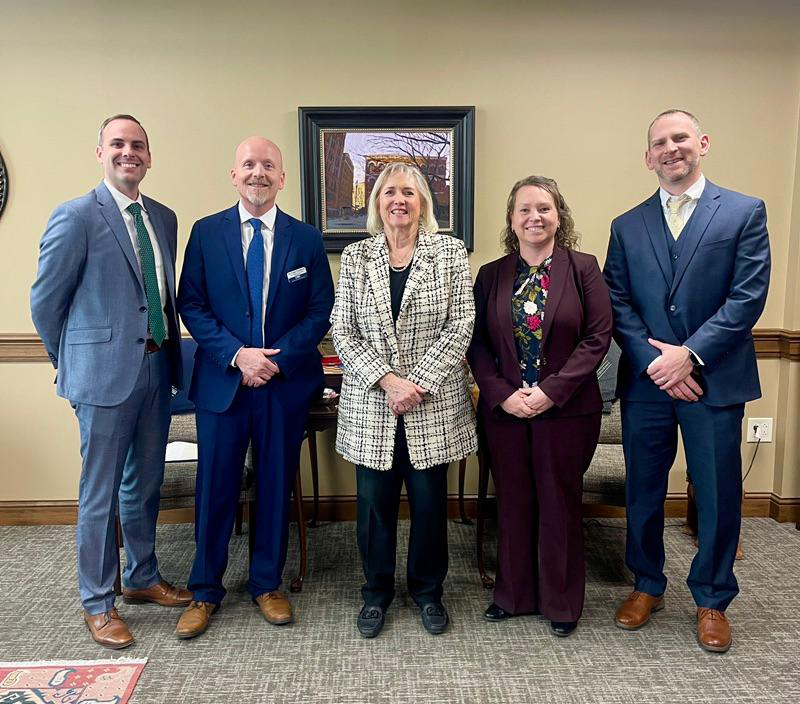
Bills Previously Covered that Passed the Senate Floor
Senate Bill 1692 – generally prohibits booting vehicles in Tennessee, with exceptions for individuals licensed through a local government.
Senate Bill 1720 – requires any advertisement that uses a healthcare practitioner’s name to prominently state the profession or license held by the practitioner.
Senate Bill 1866 -specifies that when an employer considers hiring an immigrant who might be in the process of getting their documentation to work in the country legally, the employer must consider the immigrant’s legal status at the time he or she is seeking employment.
Senate Bill 1915 – would enable individuals with specific criminal offenses on their record to secure employment opportunities.
Senate Bill 2172 -will set up a uniform system for the collection of delinquent property tax by allowing partial payments.
Senate Bill 2221 – creates a Class E Felony offense for a person who causes bodily injury to or offensive contact with someone who is part of a judicial proceeding.
Senate Bill 2363 – would require hospitals and physicians to accept electronic insurance cards as valid proof of insurance.
Senate Bill 2630 – extending the period of time that an offender may request for their names to be taken off of the sexual offender registry from 10 to 15 years.
Senate Bill 2636 -would create a 12-member advisory task force to review impaired driving and boating statewide and offer solutions to reduce those crimes from occurring.
Senate Bill 2662 – would increase the charge for anyone who acts negligently or engages in conduct that places an eight-year-old child or younger in danger from a Class D felony to a Class B felony.
Senate Bill 2677 -would create more support for veterans by requiring funding for veteran treatment court programs.
Senate Bill 2689 – would require the AOC to define and develop new software systems to help with consistency across the state as well as have updated software for a more streamlined filing process.
Senate Bill 2929 – prioritizes the autopsies of children involved in active investigations by DCS.

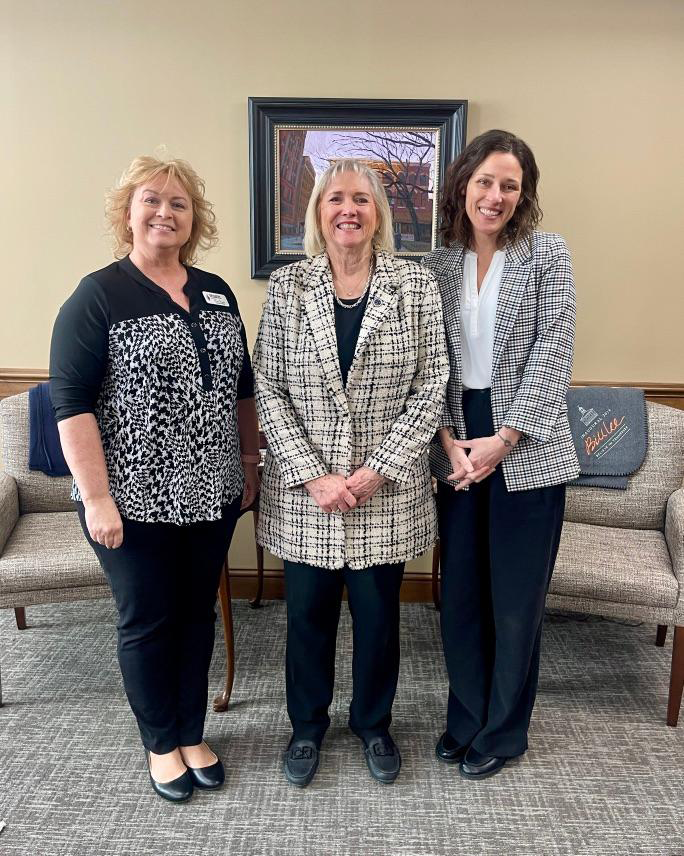


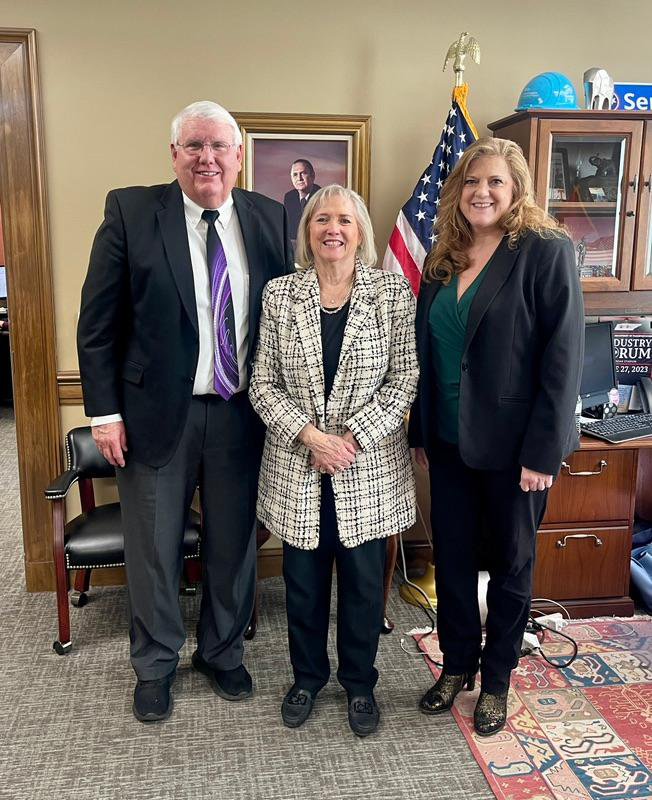
Legislation I’m Sponsoring
Bill to protect children from accessing pornography online passes Senate.
As part of ongoing efforts to protect children from inappropriate materials, the Senate passed legislation this week that aims to shield kids from the harmful effects of pornography.
Senate Bill 1792: seeks to restrict children from accessing sexually explicit adult content by requiring online media companies and operators to verify that users attempting to access pornographic websites are at least 18 years old.
Known as the Protect Tennessee Minors Act, the bill would require companies to match a photograph of an active user to a photograph on a valid form of identification issued in the United States.
The legislation creates a Class C felony for website owners and operators who violate the proposed law. The Tennessee Department of Homeland Security would be responsible for enforcing compliance with the law, which goes into effect January 1, 2025.
A national survey by Common Sense Media cited 73 percent of teen respondents aged 13-17 had watched pornography online. Fifty-four percent reported first watching pornography online before age 13. The bill passed the Senate floor unanimously on Tuesday and now awaits passage in the House.

If our office can ever be of service to you or your family, please don’t hesitate to contact us. On the left is Carly Nelson, my Legislative Assistant. On the right is Debbie Gazzaway, our Research Analyst for the Transportation and Safety Committee. We can help with issues with a state department, information on legislation, setting up a tour of the Capitol or scheduling an appointment or speaking engagements.
For information on State Senators including phone numbers and email addresses, click Tennessee State Senators.
For House members, click Tennessee House Members
For all other information on the General Assembly including legislation, schedules and videos, click Tennessee General Assembly
As always thank you for continued support!
Sincerely,
Becky Massey
District 6 Senator
615-741-1648
sen.becky.massey@capitol.tn.gov
